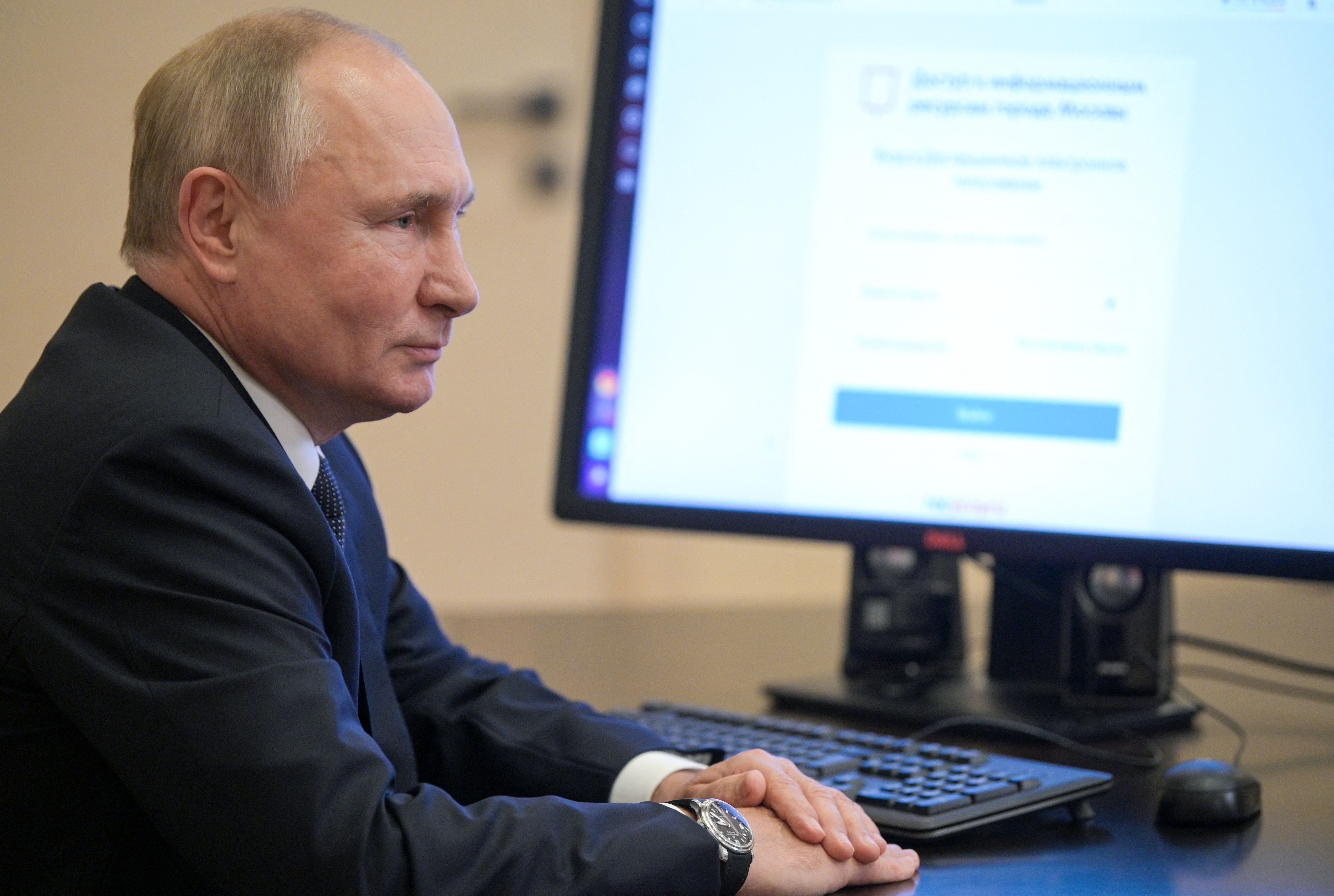Russia to remain on internet as authorities refuse Ukraine’s demand to disconnect the country
‘The Internet is a decentralized system. No one actor has the ability to control it or shut it down,’ ICANN chief Göran Marby wrote

Your support helps us to tell the story
From reproductive rights to climate change to Big Tech, The Independent is on the ground when the story is developing. Whether it's investigating the financials of Elon Musk's pro-Trump PAC or producing our latest documentary, 'The A Word', which shines a light on the American women fighting for reproductive rights, we know how important it is to parse out the facts from the messaging.
At such a critical moment in US history, we need reporters on the ground. Your donation allows us to keep sending journalists to speak to both sides of the story.
The Independent is trusted by Americans across the entire political spectrum. And unlike many other quality news outlets, we choose not to lock Americans out of our reporting and analysis with paywalls. We believe quality journalism should be available to everyone, paid for by those who can afford it.
Your support makes all the difference.The Ukrainian government’s demand to have Russian domain names removed from the internet will not go ahead.
On Monday, Andrii Nabok and vice prime minister Mykhailo Fedorov, emailed the Internet Corporation for Assigned Names and Numbers (ICANN) and Réseaux IP Européens Network Coordination Centre (RIPE NCC) to “introduce strict sanctions against the Russian Federation in the field of DNS regulation”.
They demanded that the organisations “revoke, permanently or temporarily, the domains ‘.ru’, ‘.рф’ and ‘.su’” domain names in order to prevent “atrocious crimes’ being caused in the wake of the invasion.
Their request, however, has been dismissed. “As you know, the Internet is a decentralized system. No one actor has the ability to control it or shut it down,” ICANN chief Göran Marby wrote in his response.
“Our mission does not extend to taking punitive actions, issuing sanctions, or restricting access against segments of the Internet — regardless of the provocations,” he added. “Essentially, ICANN has been built to ensure that the Internet works, not for its coordination role to be used to stop it from working.”
The response, while disappointing to the Ukrainian government, is likely to be well-received.
Russia has already attempted to bolster its ‘splinternet’ – a version of the internet that would only work in Russia, similar to the ‘Great Firewall’ restrictions implemented by the Chinese government – in 2019.
Global technology giants such as Google and Meta have already been issuing restrictions against state-sponsored media such as RT and Sputnik. As such, a move that would further isolate the country could cause regular citizens to push back against such stringent restrictions.
Bill Woodcock, an executive director of the internet infrastructure NGO Packet Clearing House, tweeted that the actions would make “Russian civilian Internet users much more vulnerable to man-in-the-middle attacks, such as are used to compromise banking credentials and web site passwords” while having little to no effect on the Russian government and military.
The former president of the ICAAN Paul Twomey agreed, tweeting: “Keeping the protocol layer operating in Russia is the best way to ensure that sites carrying diverse views to Russian audiences are effective”.
Join our commenting forum
Join thought-provoking conversations, follow other Independent readers and see their replies
0Comments